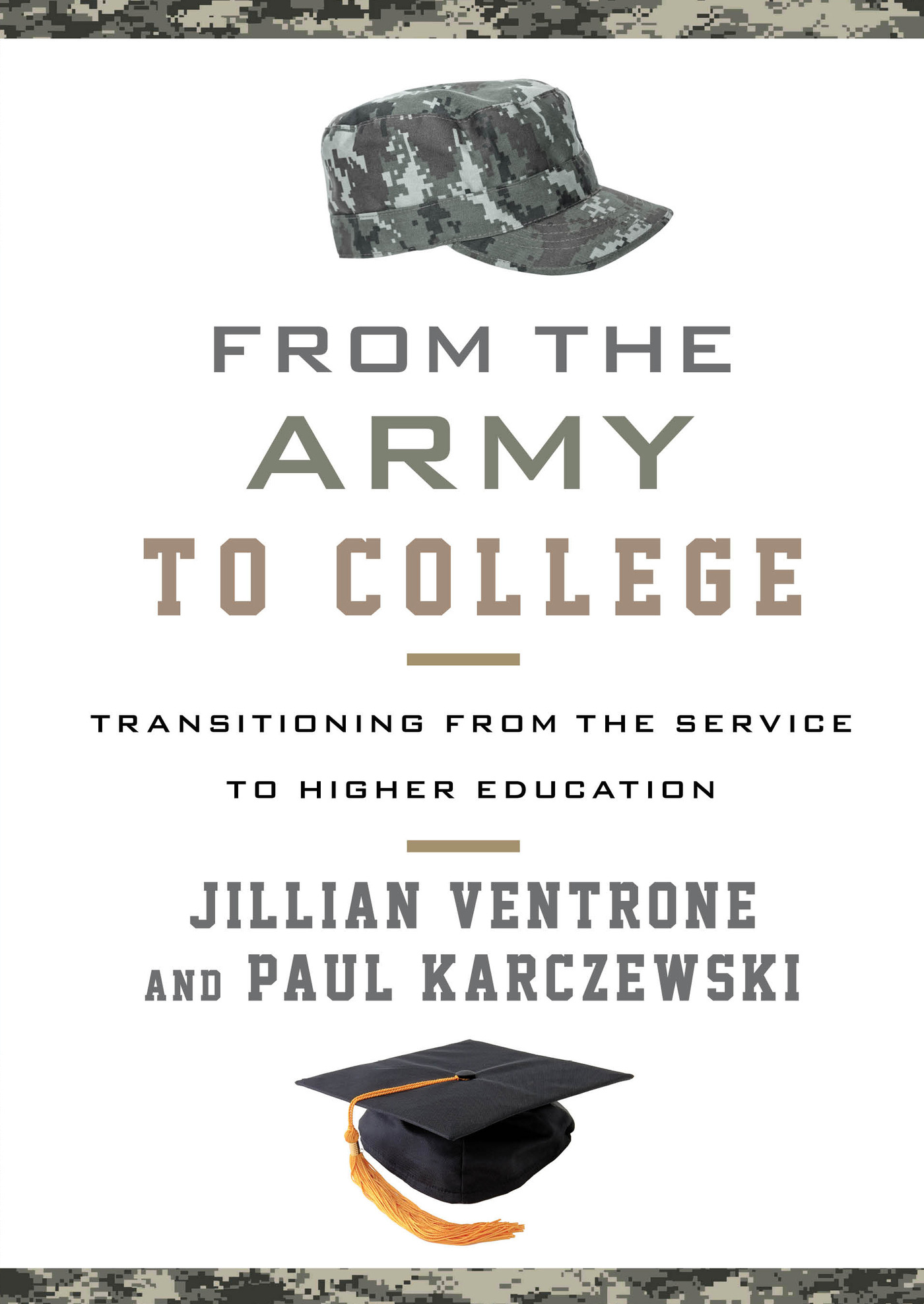From the Army to College
From the Army to College
Transitioning from the Service to
Higher Education
Jillian Ventrone and Paul Karczewski
ROWMAN & LITTLEFIELD
Lanham Boulder New York London
Published by Rowman & Littlefield
A wholly owned subsidiary of The Rowman & Littlefield Publishing Group, Inc.
4501 Forbes Boulevard, Suite 200, Lanham, Maryland 20706
www.rowman.com
Unit A, Whitacre Mews, 26-34 Stannary Street, London SE11 4AB
Copyright 2015 by Rowman & Littlefield
All rights reserved. No part of this book may be reproduced in any form or by any electronic or mechanical means, including information storage and retrieval systems, without written permission from the publisher, except by a reviewer who may quote passages in a review.
British Library Cataloguing in Publication Information Available
Library of Congress Cataloging-in-Publication Data
Ventrone, Jillian.
From the army to college: transitioning from the service to higher education / Jillian Ventrone and Paul Karczewski.
pages cm.
Includes bibliographical references and index.
ISBN 978-1-4422-4806-9 (cloth : alk. paper) -- ISBN 978-1-4422-4807-6 (electronic)
1. Veterans--Education, Higher--United States--Handbooks, manuials, etc. 2. College students--Services for--United States--Handbooks, manuals, etc. I. Karczewski, Paul, 1981- . II. Title.
UB357.V342 2015
378.1'9826970973--dc23
2015011842
 TM The paper used in this publication meets the minimum requirements of American National Standard for Information Sciences Permanence of Paper for Printed Library Materials, ANSI/NISO Z39.48-1992.
TM The paper used in this publication meets the minimum requirements of American National Standard for Information Sciences Permanence of Paper for Printed Library Materials, ANSI/NISO Z39.48-1992.
Printed in the United States of America
Preface
Todays soldiers are highly motivated to serve, but face numerous challenges, especially considering the sacrifices they have made over the past decade of war. As the service branches face budget cuts and drawdowns, soldiers need to be aware of the resources and options available to help make them more competitive for promotion or more credible for potential civilian-sector employers. From the Army to College: Transitioning from the Service to Higher Education fulfills this need by serving as a long-term reference manual that will support soldiers throughout their higher education or vocational pursuits and assist with navigating the available funding resources. Aspiring civilians looking to join the Army, soldiers already on active duty, or those transitioning into the civilian sector will gain invaluable information to help them properly prepare, plan, and perform the tasks necessary for a successful transition into the world of education. If a soldiers goal is to expand his or her credentials through education or training, this book is the definitive field manual.
Introduction
The Army offers its soldiers many different opportunities for self-betterment, such as skills training, service to country, travel, active-duty educational benefits, and a solid career path. In this era of soaring higher education costs, many soldiers also join for the chance to earn the Post-9/11 GI Bill, an amazing benefit that helps students attain a quality education upon separation from the service without burdening themselves with debt.
From the Army to College: Transitioning from the Service to Higher Education is designed as a guide for soldiers who are preparing for their educational journeys. Soldiers have many education and career possibilities available to them because of their service, but they are often hard to find and navigate correctly. This book simplifies this process by disseminating necessary information and teaching readers how to pursue credible educational or career training while maximizing all available resources.
As the service branches face budget cuts and drawdowns, active-duty personnel are looking for ways to be more competitive for promotion or officer selections and more credible for potential civilian-sector employers. This book works as a long-term reference guide, assisting soldiers in creating educational and career-based goals and supporting them through their pursuit of success.
As academic counselors aboard federal installations, we have helped thousands of service members develop successful educational plans to achieve their goals. In this book we pass on what we have learned, equipping readers with the information they need to create a successful plan of attack and feel more confident about their decisions regarding their educational journeys.
Some of the information in this book is reprinted from the Marine Corps version, From the Marine Corps to College: Transitioning from the Service to Higher Education. Much of the information is applicable to service members from each of the different branches.
Chapter 1
Get Going on Your Education
Higher education is a foreign environment for most service members, and getting started is the hardest part. Soldiers often put off school because they have received mixed advice, are confused by the process, or are nervous that they might make a mistake. This chapter helps soldiers prepare properly to take their first step with confidence.
Get Started
Getting started on higher education is usually the most difficult step a service member will take. Once that initial hurdle is overcome, the rest will begin to fall into place. That is not to say that it will be smooth sailing. But the fear factor will have dissipated, and you will learn to understand the rhythm of your classes. If you follow the directions outlined in this chapter and reference this book along the way, your trip down the higher education road should be much less stressful.
Returning to school after being in the military can seem like a daunting experience, but it will be worth your while. Many service members entered the military because they did not feel that college was the appropriate pathway for them. After serving in the Army for several years, achieving a college degree becomes an attainable goal. With the proper support, soldiers who were successful in the Army will be able to conquer an academic or vocational training objective. The skills acquired in the Army, along with the information offered in this book, can assist you in building and managing a plan of attack.
If you are still on active duty, Army Education Centers are available on most bases to assist in your decision-making process. After reading through this book, make an appointment with an academic counselor at the base where you are stationed. He or she will help guide you through the process of getting started. The counselor can also act as your guide along your educational pathway. If you ever feel that you are not progressing properly, the counselor should be your first go-to individual.
If still on active duty, there is a specific pathway to be eligible for Tuition Assistance (TA). The section on TA in chapter 6, Cost and Payment Resources, thoroughly covers the steps to receive funding through this program. If you are preparing to transition off active-duty service, make an appointment with a counselor to receive assistance in understanding your GI Bill benefits and how you can activate the benefit process. The counselors can also help you prepare for your new mission: higher education.
If you are a veteran and located close to a military base (any branch), contact the base education center for assistance. If you are not located near a military base, call the veterans representative at the school you are thinking about attending. He or she should be your initial point-of-contact for everything at the school. These individuals are often veteran students at the school and have already been there and done that, so they know how to get you started along the proper pathway.
Next page
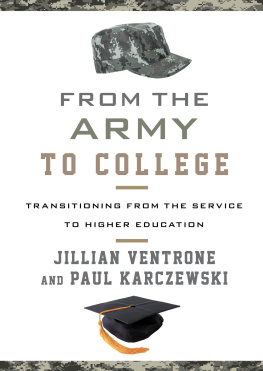
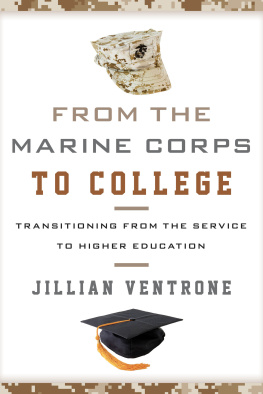

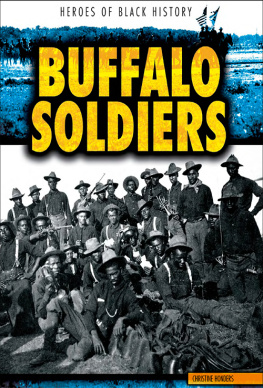
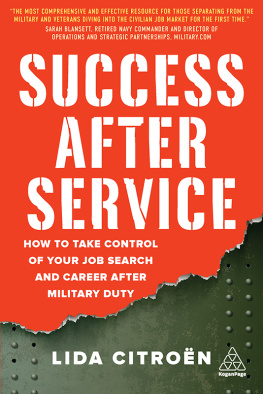

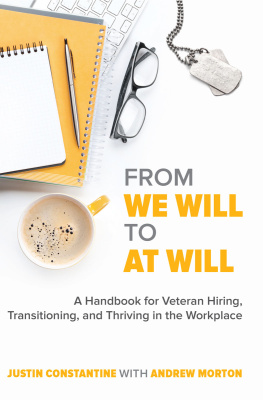
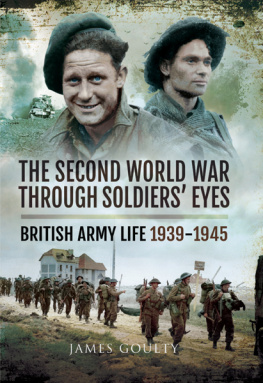
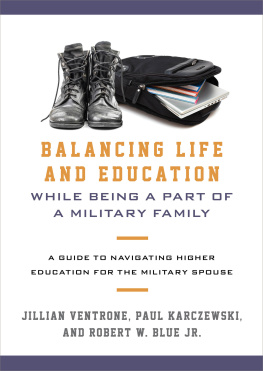
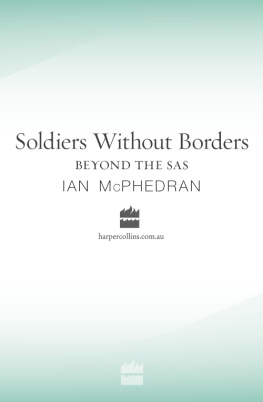
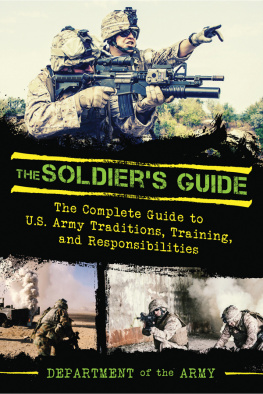
 TM The paper used in this publication meets the minimum requirements of American National Standard for Information Sciences Permanence of Paper for Printed Library Materials, ANSI/NISO Z39.48-1992.
TM The paper used in this publication meets the minimum requirements of American National Standard for Information Sciences Permanence of Paper for Printed Library Materials, ANSI/NISO Z39.48-1992.